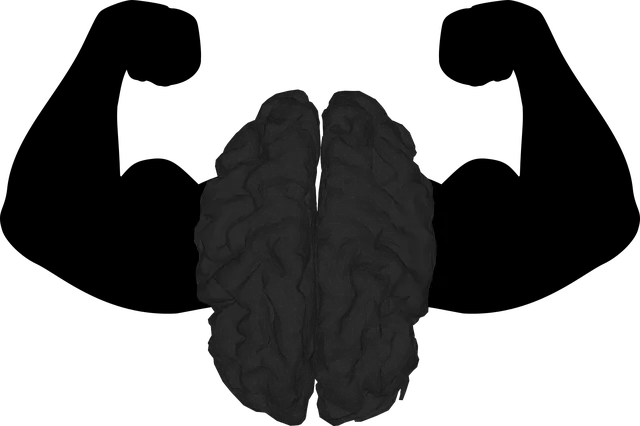Substance abuse is a complex issue driven by biological, psychological, and environmental factors that can lead to severe mental health consequences. Integrated approaches to treatment and prevention are key, with programs like Aurora Kaiser mental health classes playing a vital role in reducing stigma and providing supportive environments. These classes offer interactive sessions focusing on empathy building, anxiety relief, conflict resolution, and cognitive behavioral strategies. By addressing personal risks, triggers, and vulnerabilities, individuals gain confidence to resist substances through positive affirmations and skill-building workshops. Evidence-based prevention strategies leverage stress management, healthy coping mechanisms, and community support for sustained recovery, with ongoing therapeutic support reinforcing sobriety.
Substance abuse poses significant risks to both physical and mental health, underscoring the urgent need for effective risk reduction strategies. This article explores a comprehensive approach to addressing this complex issue, focusing on the multifaceted role of Aurora Kaiser mental health classes in fostering resilience. By understanding the impact of substance abuse on mental health and employing evidence-based strategies, individuals can identify personal risks, minimize exposure, and access community support for lasting recovery.
- Understanding Substance Abuse and Its Impact on Mental Health
- The Role of Aurora Kaiser Mental Health Classes in Risk Reduction
- Identifying Personal Risks and Triggers for Substance Abuse
- Evidence-Based Strategies to Minimize Exposure and Build Resilience
- Community Support and Continued Care for Lasting Recovery
Understanding Substance Abuse and Its Impact on Mental Health

Substance abuse is more than just an issue of personal choice; it’s a complex interplay between biological, psychological, and environmental factors. Understanding these underlying causes is crucial for implementing effective risk reduction strategies. When left unaddressed, substance abuse can lead to severe mental health consequences, exacerbating existing conditions or triggering new ones. The relationship between substance use and mental illness is bidirectional, with each often fueling the other in a vicious cycle. This dynamic is particularly concerning, as it underscores the need for integrated approaches to treatment and prevention.
Mental Illness Stigma Reduction Efforts play a vital role in fostering an environment where individuals struggling with substance abuse feel safe seeking help. Aurora Kaiser mental health classes, for instance, focus on destigmatizing mental illness while teaching coping mechanisms and self-care practices that form the foundation of a robust self-care routine. Risk Management Planning for Mental Health Professionals is another critical aspect, ensuring practitioners are equipped to recognize and address their own vulnerabilities and those of their clients. By integrating Self-Care Routine Development for Better Mental Health into their practices, professionals can model healthy behaviors, thereby promoting resilience not just in themselves but also in the individuals they support.
The Role of Aurora Kaiser Mental Health Classes in Risk Reduction

The Aurora Kaiser mental health classes play a pivotal role in comprehensive risk reduction strategies for substance abuse. These classes are designed to equip individuals with essential tools and skills, addressing underlying issues that contribute to drug or alcohol dependence. Through interactive sessions, participants learn effective empathy building strategies that foster understanding and connection, breaking down barriers often associated with stigma and shame. By cultivating empathy, these classes create a supportive environment where individuals feel heard and valued, a crucial step in encouraging open communication about mental health challenges.
Moreover, the curriculum incorporates anxiety relief techniques and conflict resolution skills. Many people turn to substances as a means of coping with stress or difficult emotions, so learning healthy coping mechanisms is vital. Classes teach mindfulness practices, relaxation exercises, and cognitive behavioral strategies to manage anxiety effectively. Additionally, conflict resolution techniques help individuals navigate interpersonal challenges without resorting to substance abuse, promoting healthier relationships and decision-making processes.
Identifying Personal Risks and Triggers for Substance Abuse

Understanding personal risks and triggers is a pivotal step in prevention and early intervention for substance abuse. Many factors contribute to an individual’s vulnerability, including mental health conditions such as depression or anxiety. Aurora Kaiser mental health classes offer valuable tools for identifying and managing these internal drivers. By learning effective stress reduction methods and crisis intervention guidance from experts like Aurora Kaiser, individuals can gain insights into their emotional triggers and develop healthier coping mechanisms.
This proactive approach allows one to anticipate potential risks and implement strategies to mitigate them. Boosting confidence through positive affirmations or skill-building workshops empowers people to resist the allure of substances when faced with challenging situations. Ultimately, recognizing personal vulnerabilities and armed with the right tools, individuals can navigate triggers more effectively, fostering better mental health and overall well-being.
Evidence-Based Strategies to Minimize Exposure and Build Resilience

Substance abuse prevention begins with evidence-based strategies that minimize exposure to risks and build resilience among individuals. Aurora Kaiser mental health classes are a prime example, offering comprehensive programs designed to equip people with the knowledge and skills needed to make informed decisions about their well-being. These classes focus on teaching effective stress management techniques, fostering healthy coping mechanisms, and promoting a positive understanding of mental health.
Additionally, public awareness campaigns development plays a crucial role in reducing stigma and encouraging open conversations about substance abuse. By sharing accurate information and personal stories, these campaigns raise awareness, provide crisis intervention guidance, and offer support resources for those struggling. Integrating such initiatives into community settings can significantly contribute to building resilience and fostering environments that deter substance abuse.
Community Support and Continued Care for Lasting Recovery

Community support plays a pivotal role in sustaining recovery from substance abuse. Integrating into supportive communities, such as those offered through Aurora Kaiser mental health classes, provides individuals with a network of peers and mentors who understand their struggles. These communities offer a safe space for open dialogue, encouragement, and accountability, fostering a sense of belonging that strengthens recovery efforts.
Continued care is equally crucial. Beyond initial treatment, ongoing support through various therapeutic modalities, including Mindfulness Meditation and Emotional Healing Processes, equips individuals with the tools to manage triggers and maintain sobriety. Stress Reduction Methods, learned through these continuous care programs, enable individuals to navigate life’s challenges without resorting to substance abuse as a coping mechanism.
In addressing substance abuse, a comprehensive approach is essential. From understanding its profound impact on mental health to implementing evidence-based strategies, individuals and communities can significantly reduce risks. The integration of Aurora Kaiser mental health classes offers valuable tools for managing triggers and building resilience. By combining personal risk identification with community support, lasting recovery becomes attainable. These strategies not only empower individuals but also foster healthier, more resilient communities.






